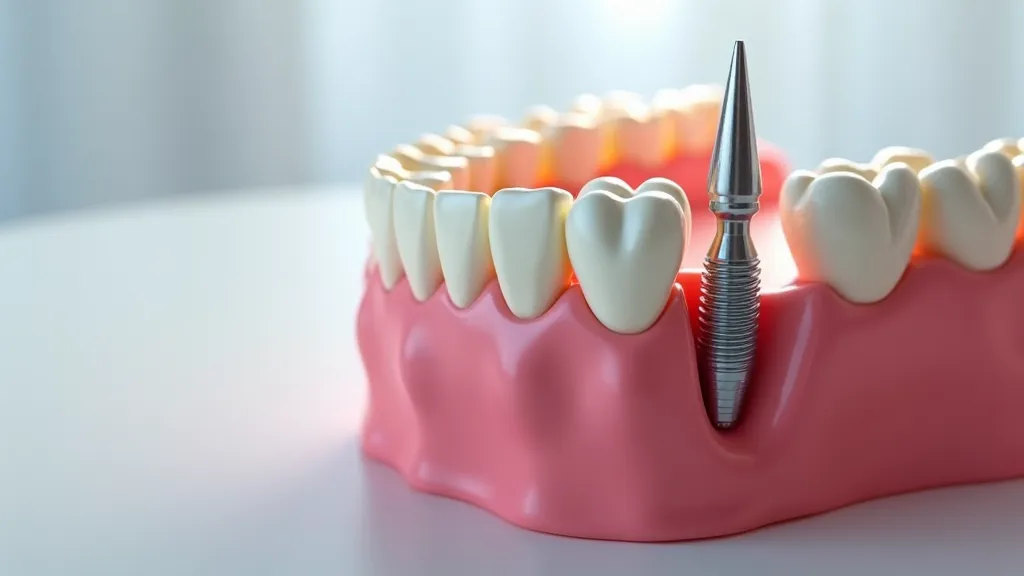Discover everything about full mouth dental implants, including costs, procedures, and finding qualified dentists nearby.

Full mouth dental implants are a transformative solution for individuals suffering from extensive dental issues, including tooth loss and severe decay. This guide will cover everything you need to know about full mouth dental implants, including costs, procedures, and how to find qualified dentists in your area. Understanding the intricacies of full mouth dental implants can help you regain confidence in your smile and improve your overall quality of life.
Full mouth dental implants involve the placement of multiple implants to support a full arch of prosthetic teeth. This option can restore function and aesthetics for those who have lost very or all of their natural teeth. Unlike traditional dentures, which can shift and lead to discomfort, dental implants provide a stable and secure foundation, allowing you to eat, speak, and smile without worry.
The cost of full mouth dental implants can vary significantly based on several factors, including location, the dentist's expertise, and the materials used. Here’s a breakdown:
When seeking a dentist for full mouth dental implants, consider the following steps:
The process of getting full mouth dental implants typically involves several steps:
Proper aftercare is crucial for the longevity of your implants:
Patients typically report minimal discomfort during and after the procedure due to anesthesia and pain management strategies. Most discomfort can be managed with over-the-counter pain relievers, and your dentist will provide specific instructions for aftercare.
With proper care, full mouth dental implants can last over 10 years, and many can last a lifetime. Regular dental check-ups and good oral hygiene practices are key factors in ensuring their longevity.
Potential risks include infection, nerve damage, or implant failure; however, these are relatively rare when performed by experienced professionals. Discuss any concerns with your dentist to better understand the risks and how they can be mitigated.
Most adults are candidates, but a thorough evaluation is necessary to assess bone density and overall health. Certain medical conditions or a lack of adequate bone structure may require additional treatments, such as bone grafting, before implants can be placed.
After the implant placement, you may experience swelling, bruising, or discomfort, which typically subsides within a few days. Following your dentist's aftercare instructions is crucial for a smooth recovery.
Caring for dental implants is similar to caring for natural teeth. Regular brushing, flossing, and dental visits are essential. You may also want to use an antibacterial mouthwash to help keep the area around the implants clean.
Full mouth dental implants offer a life-changing solution for individuals with significant dental issues. By understanding the process, costs, and aftercare, you can make informed decisions about your dental health. Always seek qualified dentists nearby to ensure you receive top care. With the right professionals and commitment to aftercare, you can enjoy the benefits of a restored smile and improved quality of life.
If you're considering full mouth dental implants, consult with local dental professionals to explore your options. Take the first step towards restoring your smile today! Don’t hesitate to reach out, ask questions, and gather the information you need to make the best decision for your dental health.
While full mouth dental implants can be a significant investment in your health and confidence, there are additional considerations to keep in mind:
Transitioning to dental implants may require some lifestyle adjustments. For instance, if you are a smoker, quitting can greatly improve the success rate of your implants. Additionally, maintaining a balanced diet rich in calcium and vitamin D can support your bone health, aiding the osseointegration process.
The journey to obtaining full mouth dental implants can be emotional. Many individuals feel anxious about the procedure or nervous about the results. Having a support system in place, whether it's family, friends, or support groups, can help ease these feelings. Sharing your experiences with others who have undergone similar treatments can also be beneficial.
After receiving your dental implants, long-term maintenance is essential. Be prepared for future visits to your dentist for adjustments or replacements of the prosthetic teeth, as wear and tear can occur over time. Staying proactive about your oral health will ensure the longevity of your dental implants.
If full mouth dental implants do not seem like the right fit for you, there are alternative solutions available, such as traditional dentures or implant-supported dentures. Discuss these options with your dentist to find a treatment plan that aligns with your needs and lifestyle.
Full mouth dental implants represent a significant opportunity for those looking to restore their dental health and reclaim their smiles. With advancements in dental technology and techniques, the success rates for dental implants continue to improve, providing patients with a reliable and aesthetically pleasing solution. Whether you are struggling with tooth loss or severe decay, full mouth dental implants can offer a new lease on life, enhanced confidence, and improved functionality.
Remember that the journey begins with a consultation. Take the time to research, ask questions, and choose a dentist who understands your unique needs. By investing in your dental health today, you are paving the way for a brighter, healthier tomorrow.
The following table displays the cost ranges for individual dental implants in countries where the official language is English:
| Country | Currency | Price Range |
|---|---|---|
| United States (US) | USD | $3,000 - $6,000 |
| United Kingdom (GB) | GBP | £2,000 - £2,500 |
| Australia (AU) | AUD | AU$3,500 - AU$6,500 |
| Canada (CA) | CAD | CA$3,000 - CA$5,500 |
Data is as of October 2025, from internal market analysis and third-party reports. Prices are for informational purposes and may vary by region, clinic, and physician.